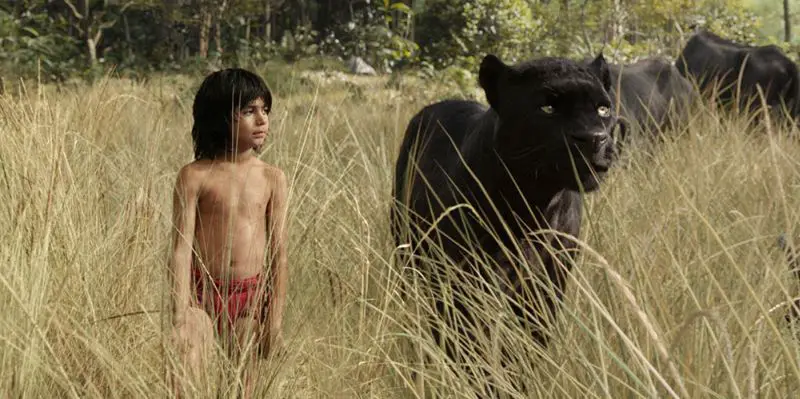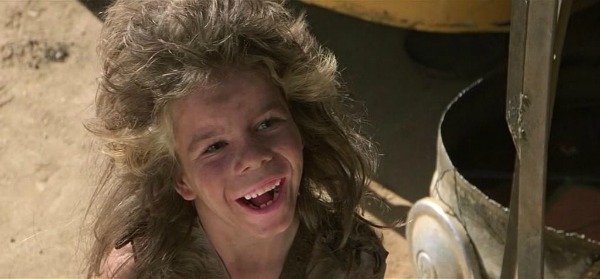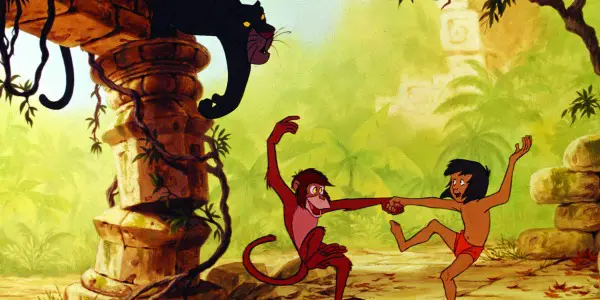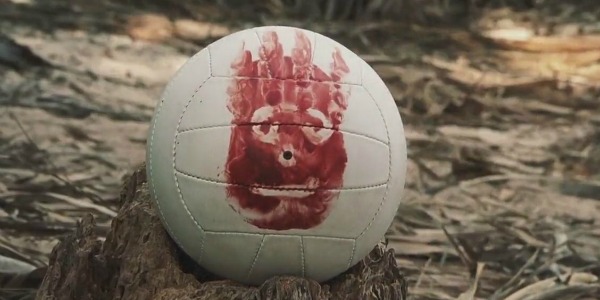The Feral Child: What A Real Life Mowgli Would Look Like

Fresh out of grad school for clinical psych, you can…
Filmgoers have always been captivated with man’s primal nature. From the silver screen adaptations of The Wolf Man to the mysterious Creature from the Black Lagoon, the primitive side of these movie monsters has contributed to horror genre’s A-team roster. Upon viewing their animalistic nature, our minds are suddenly given a glimpse into the missing link between man and beast. While the exploitation of man’s battle with primal urges is a common trope, it’s not until children get involved that the subject becomes much a little less cut and dry.
When confronted with a feral child (those raised apart from human enrichment) we often find ourselves unsure how to act. Part of us aches to care for these children, to save them, while another part feels that they may be a lost cause, never to integrate back into society. Fortunately, Disney’s latest live action adaptation, The Jungle Book, doesn’t force us to make this decision as it provides us with a glossed over wild child, complete with catchy show tunes.

We watch as a morally strong and abstract thinking Mowgli (Neel Sethi) is able to expertly survive his adventures amongst the anthropomorphic jungle animals. However, the depiction of this feral child’s abilities are highly exaggerated as scientific case studies begin to demonstrate the deficits exhibited by children raised in the wild.
Monkey see, Mowgli do
Children begin developing behaviors through the process of observational learning, in which one person models a behavior and the other mimics it. In Mowgli’s case, the concept of “monkey see, monkey do” has never been more on the nose. While he demonstrates some animal influenced characteristics, such as walking on all fours in order to climb a flight of stairs, Mowgli demonstrates overall normal human behavior (i.e. standing straight, sitting cross legged, building tools).
While his posture and stance could be explained by instinctual drift, or a tendency for an animal to revert back to behaviors common for it’s species, Mowgli’s actions should in reality mirror those of his furry compatriots. A true feral child will exemplify behaviors they witness most often. Reports of feral children in Russia raised exclusively around birds would flap their arms when startled, while those living amongst dogs would often bark when communicating their needs. Mowgli’s behaviors exhibit a slight influence from his environment but nowhere near those that should be seen, provided his unique upbringing.
Call of the Wild
Language is arguably one of our defining traits as humans and the acquisition of language is most present at a young age. For Mowgli, he learned to speak the languages of animals. While in the film it states that some of the animals lack a common vernacular, Mowgli is still able to converse with a great number of species.

Many linguists believe that children have a critical period of development (the first few years) in which primary language, amongst other skills, are easier to master. It’s during this early development that neural connections are still growing rapidly and a child’s mind is like a sponge, ready to soak up any new information. Mowgli’s exposure to the diverse jungle inhabitants equipped him with a large set of language skills, as well as cognitive abilities (e.g. complex thinking).
While Mowgli demonstrates the ability for abstract reasoning, real world feral children are not so lucky. The unfortunate reports of neglected children have demonstrated that a lack of language enrichment leads to difficulty in understanding abstract thoughts or critical thinking, something that Mowgli demonstrates throughout his on screen identify crisis.
Apart From the Pack
Raised by wolves, the 10-year-old Mowgli attempts to discover where he falls within the animal kingdom. While he abides by the strict law of the pack, he can’t help but utilize his human ingenuity to solve the problems he’s presented with. For his age, Mowgli would fall within the psychosocial stage of development called competence vs. inferiority, at which a child will either develop a sense of pride for their achievements or feel inferior due to their failures.
Mowgli best demonstrates this by developing and constructing tools when confronted with a challenge. By succeeding in the trials set before him, Mowgli demonstrates pride in his work and a competence in his overall ability. Interestingly enough, a real feral child would also develop competence in their ability to survive in the wilderness. Such skills as hunting, climbing, or building a shelter would be of great importance to them, as these would be the behaviors most relied on for survival. It wouldn’t be until the child attempted to reintegrate into human society that they would then fall towards the inferiority end of the spectrum.
Common behaviors we take for granted such as: toilet training, language skills, even proper posture would become a great struggle for a newly acculturated feral child. This seemed to be understood by the Jungle Book’s original author, Rudyard Kipling, as he wrote about Mowgli’s difficulty in transition back to the human village.
The Bare Necessities
Mowgli’s adventures within the jungle provide him with an overly stimulating environment, as it holds lush vegetation for climbing and grand rivers for swimming. However, the most important element it lacks is the love and belonging of human companionship. This social aspect is so important for us humans that if we are refused it early on, it can end up stunting our neurological growth and even delaying our developmental milestones.
Research into the overcrowded Romanian orphanages has indicated that a lack of human interaction during early stages of life can permanently alter the brain’s development. This can lead to difficulties in academic achievements, socialization, and even developing attachments to others. Thankfully, Mowgli acquires that love and attention early on with his wolf parents. However, a true feral child would attempt to develop a level of attachment with whatever possible, even inanimate objects, as the fundamental desire of love and belonging is a universality we all hold dear.

Real World Validity?
While Hollywood’s depictions for psychological symptoms are rarely accurate, they occasionally get things right (I think of Lars from Lars and the Real Girl or John Nash from A Beautiful Mind). However, a more accurate demonstration of feral child behavior can be seen in Lenny Abrahamson’s 2015 Room, in which a mother and her son are held captive within a small shed.
The child’s behaviors in this film mirror those of previous case studies as he lacks the coping skills required to easily transition into society. His situation is heart breaking as we root for his inevitable safety, but are unsure of how successful he will be in his acculturation. While The Jungle Book caters to a younger demographic, it does not provide such vivid imagery as those demonstrated by real feral children.
Yet, it is still interesting to observe how close Hollywood’s on screen adaptions are to the real thing.
Which traits do you believe were strengthened from Mowgli living in the jungle?
Does content like this matter to you?
Become a Member and support film journalism. Unlock access to all of Film Inquiry`s great articles. Join a community of like-minded readers who are passionate about cinema - get access to our private members Network, give back to independent filmmakers, and more.
Fresh out of grad school for clinical psych, you can find Russell at any local market place next to the vendors that sell pairs of socks, as he nit-picks the psychology within movies. He enjoys long walks on the beach, candle light dinners, and systematically analyzing the first two in order to draw trivial correlations. But hey, who said science can't be sexy?











